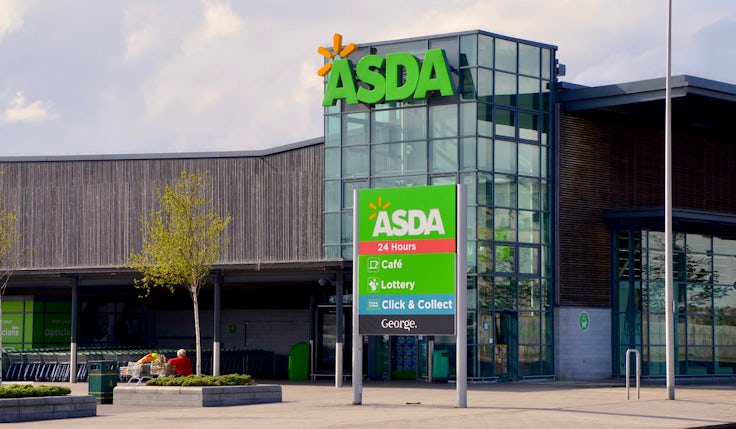Retail sales, Facebook advertising, trust in data: 5 interesting stats to start your week
We arm you with all the numbers you need to tackle the week ahead.
In-store consumer goods sales out grow online sales in November
Sales of consumer goods products in-store grew faster than online sales in the four weeks to 30 November, as consumers took to shop floors to actively look for discounts.
In-store sales grew by 5.7% year-on-year in the period, while online sales grew marginally by 0.6%. The overall proportion of grocery sales made on promotion increased from 24% to 25% in October.
The data also suggests 38% of consumers are “saving up” discounts, vouchers and points accumulated over the year to save money over Christmas.
Total grocery till sales grew 3.7% in the four weeks to 30 November, a slowdown from the previous month, when sales growth was 4%. The health and beauty category saw strong growth of 6.9% in November, while beers, wines and spirits were in decline, with sales shrinking 3.8% year-over-year.
Ocado was the fastest-growing grocery retailer over the past 12 weeks, with 16.2% growth. Lidl and M&S also saw strong growth at 11.6% and 10.6%, respectively. The UK’s biggest supermarket Tesco saw healthy growth of 5%. Meanwhile, Asda was the only major supermarket to see a year-over-year decline, with sales dropping 4.2% versus the same period last year.
Source: NIQ
Facebook advertising revenue forecast to surpass $100bn in 2024
 Facebook’s global advertising revenue is projected to surpass $100bn (£79bn) this year, as it attracts a global audience of 2.2 billion.
Facebook’s global advertising revenue is projected to surpass $100bn (£79bn) this year, as it attracts a global audience of 2.2 billion.
While the social media giant continues to attract huge advertising revenue, its dominance over the global market has decreased in the last decade. In 2013, its share of the global social media advertising market was 88.9%, but by 2025 this will have reduced to 38.2%.
Fellow Meta-owned Instagram and Bytedance’s TikTok are the two platforms highlighted as reducing its dominance of the market.
Facebook is trying to appeal to a younger Gen Z audience by prioritising creators, long-form video content and its groups, and moving away from news and political content.
Source: WARC Media
Over three in four leaders ‘blindly’ trust data
 Over three in four (77%) leaders admit they only sometimes or rarely question the data they receive, despite two-thirds (67%) worrying that reliance on dashboards means they are missing crucial opportunities.
Over three in four (77%) leaders admit they only sometimes or rarely question the data they receive, despite two-thirds (67%) worrying that reliance on dashboards means they are missing crucial opportunities.
The average number of metrics a leader consults to determine their department’s success is five, while half of leaders say they feel overwhelmed by the data or dashboards they encounter daily. Over a third (34%) state they lack the time they need to analyse data effectively.
The research also suggests that leaders are failing to make the most of data and struggling with collaboration. Under half (45%) of data is fully utilised in decision making, while 41% of leaders admit they rarely bring other departments into their data-driven decision making.
Around one in four (28%) marketers say they have integrated AI into their data processes, yet a quarter of those feel they are not leveraging its full potential. The most common diagnosis for this is around security concerns (53%), followed by integration issues (30%) and insufficient AI-ready data (28%).
Source: TheyDo
Over half of UK marketers used AI to plan their festive marketing campaigns
 Over half (55%) of UK marketers are using AI to strategically plan their festive marketing campaigns.
Over half (55%) of UK marketers are using AI to strategically plan their festive marketing campaigns.
A similar proportion (47%) say they will use artificial intelligence as a fundamental part of their seasonal marketing campaigns this year.
Generative AI in festive campaigns has already taken the spotlight this year after Coca-Cola made headlines for its remake of its ‘Holidays Are Coming’ ad. The iconic ad was completely remade through generative AI by the brand.
As well as almost half of marketers making AI a central part of their festive campaigns, over two in five (43%) are using the tool to personalise content this holiday season.
Source: Optimizely
Consumer confidence remains ‘far from strong’ ahead of Christmas
 Confidence grew for the second month running in December, rising by one point to –17, according to GfK’s Consumer Confidence Index.
Confidence grew for the second month running in December, rising by one point to –17, according to GfK’s Consumer Confidence Index.
This means consumer confidence has increased by just two points since the beginning of 2024, with January’s figure coming in at –19.
“Consumer confidence is still far from strong but there is some room for optimism,” says Neil Bellamy, consumer insights director at GfK.
Comparatively, consumers’ confidence in their personal finances during the last year grew by two points in the last month, up to –7. This is a seven-point increase on December 2023. Confidence in the forecast for personal finances in the next 12 months is on the up, with confidence now sitting at 1, compared with –2 this time last year.
Source: GfK








